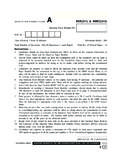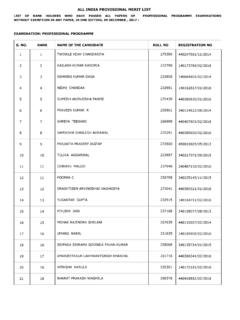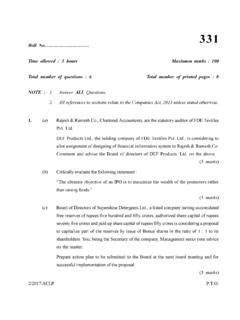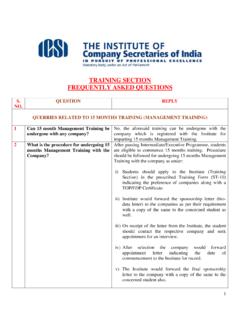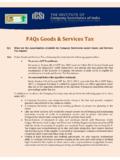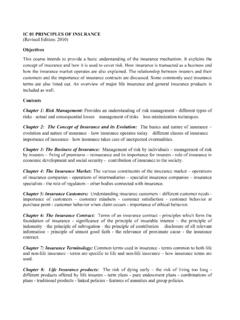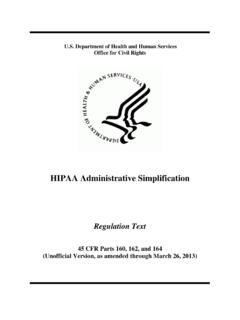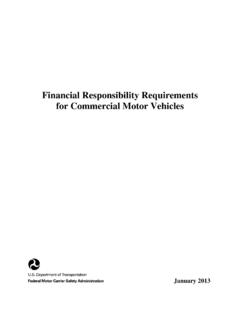Transcription of Real Estate (Regulation and Development) Act, 2016 (RERA)
1 real Estate (Regulation and development ). Act, 2016. (RERA). July 2017. Price : Rs. 150/- (Excluding postage). THE INSTITUTE OF COMPANY SECRETARIES OF INDIA. All rights reserved. No part of this book may be translated or copied in any form or by any means without the prior written permission of The Institute of Company Secretaries of India. Published by : THE INSTITUTE OF COMPANY SECRETARIES OF INDIA. ICSI House, 22, Institutional Area, Lodi Road New Delhi - 110 003. Phones : 45341000, 41504444 o Fax : 24626727. E-mail : Website : Printed at Chandu Press /100/July 2017. (ii). PREFACE. Over the past decades, India has emerged as one of the few world economies with a combination of healthy economic perspective and successive growth at global platform, amidst the mood of cynicism and reservations of emerging economies.
2 It is widely accepted that India is on its road to global growth and emerging as a prospective world leader registering sustainable development to all. In a bid to ensure sustainable growth and development of the nation along with the welfare of entire populace the Government has directed thoughtful focus on each and every driver contributing to the growth of Indian economy. This perspective is well reflected in various government initiatives, such as, various economic reforms, legal transformations, implementing structural changes, and focusing on fundamental growth of various sectors: small, micro, medium and large. real Estate Sector, which seems to be one of the major contributors in the inclusive growth of the nation with the contribution of of total GDP and growth rate to the tune of 30% is also clutching the share of its regulatory attention.
3 Significant performance of real Estate Industry with the significant rights and liabilities involved in the transactions has fetched the government attention for proper policy and regulation of real Estate sector. This led to a deep-seated legal transformation in the form of real Estate (Regulation and development ) Act, 2016. The structure of the law with focus on regulation as well as development of the real Estate sector including the capping on realization, establishment of RERAs and specialized Appellate Tribunals, Registration with Regulatory Authorities, Internal Audit and Valuations has enhanced the role of professionals in ensuring effective, oriented and directed implementation of this law in the country. With a view to advance the knowledge and to build the capacity of professionals, stakeholders, members of the industry, experts in the real Estate (Regulation and development ) Act, 2016, the Institute published this Publication.
4 I commend the dedicated efforts put in by Mr. Chittaranjan Pal, Assistant Director, and CS Pankila Bhardwaj, Consultant (Professional development , Perspective Planning & Studies) for in preparing the manuscript and finalizing the publication under the guidance of CS Sonia Baijal, Director, ICSI. I am also thankful to CS Manoj Agrawal, Group (iii). Company Secretary, Shristi Infrastructure and CS (Dr.) Sanjeev Kumar, Executive Director, Bajaj Hindustan Sugar Limited for their value addition made to the publication. I am sure that this publication would certainly facilitate the understanding of the professionals, members and students on various facts and facets of real Estate (Regulation and development ) Act, 2016 and would enrich their knowledge on this new legislation. Place : New Delhi CS (Dr.) Shyam Agrawal Date : 18 July, 2017 President The Institute of Company Secretaries of India (iv).
5 CONTENTS. 1. Introduction 1. 2. Regulatory Framework real Estate (Regulation and development ) Act, 2016 3. 3. Registration of real Estate Project and Registration of real Estate Agents 13. 4. Functions and Duties of Promoter 20. 5. Rights and Duties of Allottees 32. 4. The real Estate Regulatory Authority 34. 5. Central Advisory Council 42. 6. The real Estate Appellate Tribunal 43. 7. Role of Company Secretaries 49. 8. Offences, Penalties and Adjudication 52. 9. Specimen Agreement for Sale to be Executed between the Promoter and the Allottee 56. 10. FAQ's on real Estate (Regulation and development ). Act, 2016 76. (v). INTRODUCTION. Currently, more and more researches are being conducted in relation to the promotion of the sustainable development in several areas to allievate the relevant problem. Since sustainability' and sustainable development ' encompases economic security and growth, environmental quality and integrity, social cohesion and quality of life, empowerment and governance, hence, the role of the real Estate sector in the promotion of the sustainable development become predominant, because it involves one of the basic pursuit of life, viz, roti, kapda and makan and thus has major impact on the state of socio-economic status.
6 Since real Estate is inseparable from human economy in its social form, and all plans of social reform must be directed toward an appropriate distribution of economic goods including housing and infrastructure. There exists a huge demand for housing and infrastructure in the Indian scene. For achieving the goal of Housing for All', we need to build millions of houses both in urban and rural areas. The urban housing shortage is estimated at million in 2015. Total rural housing shortage in India stood at million as of 2015 and is expected to grow to million by the end of 2017. Demand for residential space in Low Income Group category remained 40% whereas supply was much behind at 22% a demand supply gap of 18%. Similarly, demand-supply gap in Middle Income Group and High Income Group categories stood at 20% and 2% respectively.
7 The housing sector alone contributes 5- 6 per cent to the country's Gross Domestic Product (GDP). real Estate , as a general term, describes the built environment, which plays a vital role in every aspect of an economy, society and environment. Businesses and society can't function without the services of commercial property, including the provision of offices, shops, factories, malls and many other forms of real Estate . The commercial property sector delivers and manages the infrastructure needed for entrepreneurship to thrive. It is therefore a fundamental source of employment and economic growth, and a major contributor in addressing two critical challenges of our time: providing liveable and functioning cities for a growing urban population and reducing the environmental footprint of the built environment. The real Estate has a catalytic role in fulfilling the demand for housing for the various socio-economic classes.
8 Equally important is need to provide the back up infrastructure covering utility services such as water supply, sewerage, drainage, roads and transport requirements as well as social infrastructure like schools, health and recreation facilities, commercial infrastructure like markets/malls, office complexes, technology parks etc. The cumulative effect of these demands places the onus on the real Estate and construction sector, providing an excellent opportunity for conferring social benefits which could act as a major vehicle for kick-starting the economy. 1. 2 real Estate (Regulation and development ) Act, 2016 (RERA). IBEF Report (2016) estimates that India's real Estate sector's market size is expected to grow upto USD180 billion by 2020 from billion in 2014, that reflects an increase of times. It is further estimated to be worth USD853 billion by 2028.
9 Further, real Estate sector is the fourth largest sector in terms of FDI inflows which is estimated to grow to USD25 billion by FY22. The number of Indians living in urban areas are increasing rapidly and are expected to be about 600 million in 2031. The Indian economy experienced robust growth in the past decade and is expected to be one of the fastest growing economies in the coming years. It has also been estimated that real Estate contribution to India's GDP is estimated to increase to about 13 per cent by 2028. Increasing share of real Estate in the GDP would be supported by increasing industrial activity, improving income level, and urbanisation. The growth of real Estate sector is not only driven by growing economy but policy support from government as well. For instance, Government plans to build 100 smart cities which would reduce the migration of people to metro and other developed cities.
10 Government initiatives such as various urban development policies and programmes ( , JNNURM, Land Acquisition Act. Affordable Housing, Ease in housing finances, Widening the scope of real Estate market, change in FDI Regulation) are expected to contribute to enhanced urbanisation. Urbanisation and growing household incomes are driving demand for residential real Estate and growth in the retail sector. India's urban population as a percentage of total population was around per cent in 2016 and is expected to rise to 40 per cent by 2030. Industry players, including realtors and property analysts, are rooting for the creation of "Special Residential Zones" (SRZs), along the lines of SEZs. **. real Estate (Regulation and development ) Act, 2016 (RERA) 3. REGULATORY FRAMEWORK real Estate . (REGULATION AND development ) ACT, 2016.



